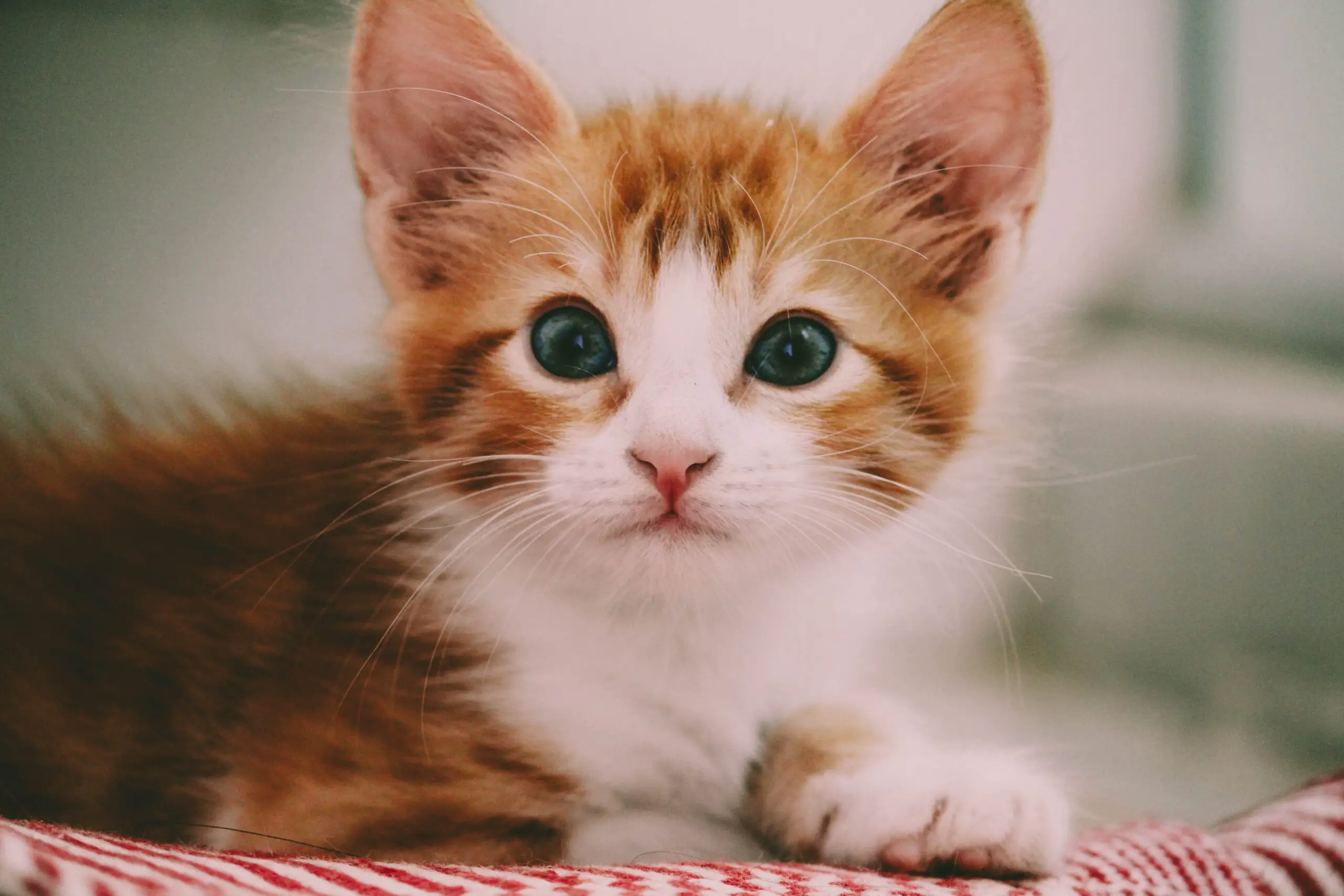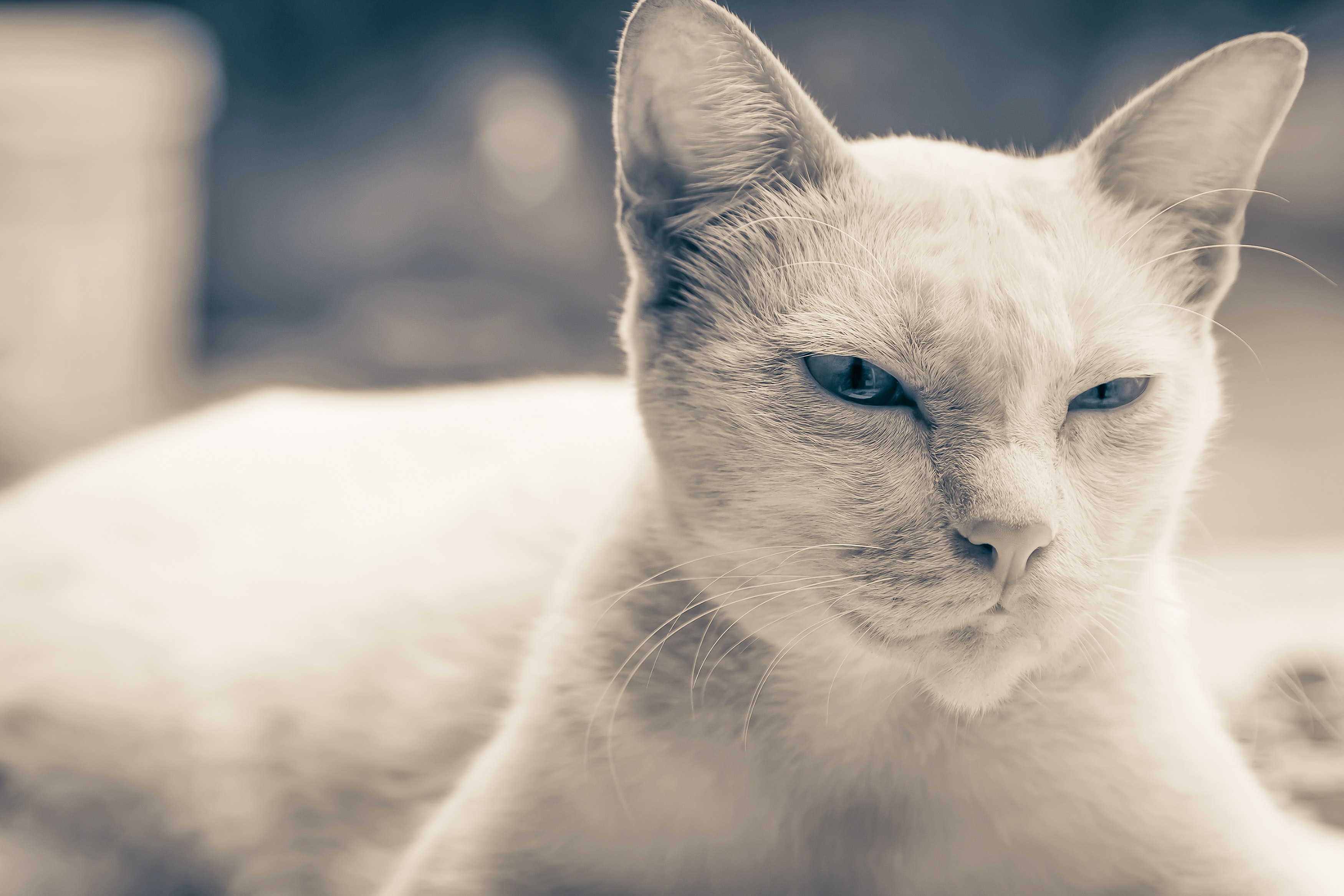Table of Contents
It can be concerning when you notice your cat’s eyes always dilated, as it could indicate a medical issue. But what exactly causes this symptom and how do you diagnose the cause? Fortunately, there are steps that pet owners can take to prevent and manage their cats’ dilated eyes.
In this blog post, we’ll explore why my cats eyes always seem to be dilated and provide helpful advice for managing the condition. We’ll look at underlying causes of dilation in cats such as trauma or neurological conditions so that concerned pet owners can understand why are my cats eyes always dialated.
Table of Contents:
- Causes of Dilated Eyes in Cats
- Diagnosing the Cause of Dilated Eyes in Cats
- Prevention and Management of Dilated Eyes in Cats
- Conclusion
Causes of Dilated Eyes in Cats
Infections: Infections are one of the most common causes of dilated eyes in cats. Bacterial and viral infections can cause inflammation of the eye, leading to dilation. In some cases, an infection may be accompanied by other symptoms such as discharge from the eyes or sneezing.
If your cat has dilated eyes and any other signs of illness, it is important to take them to a veterinarian for testing and treatment.
Stress and Anxiety: Stress and anxiety can also lead to dilated eyes in cats. Cats who experience high levels of stress or fear may have their pupils become larger than normal due to increased adrenaline production in response to their environment.
Signs that your cat is stressed include hiding, pacing, excessive grooming, meowing more than usual, or avoiding people or other animals they normally interact with. It is important to identify sources of stress for your cat so you can reduce their exposure if possible.
Neurological Disorders: Neurological disorders can also cause dilated eyes in cats. These conditions affect the nervous system which includes the muscles that control pupil size and shape.
Common neurological disorders seen in cats include feline infectious peritonitis (FIP), toxoplasmosis, encephalitis, hydrocephalus, head trauma or brain tumors which all could potentially lead to changes in pupil size among other symptoms depending on severity of condition present.
Other medical conditions such as thyroid disease or diabetes mellitus can also cause changes in pupil size due to hormonal imbalances affecting muscle tone around the eye area resulting in dilation.
Additionally, certain medications used for treating pain, allergies, asthma, seizures etc. can result in side effects including dilation. If you notice any changes after starting a new medication it is best to speak with your vet about potential side effects associated with the drug being administered.
Diagnosing the Cause of Dilated Eyes in Cats
Diagnosing the cause of dilated eyes in cats requires a physical examination as well as blood tests and imaging tests. These tests can help determine the underlying cause and provide guidance on treatment options for pet owners.
Physical Examination: A physical examination is an important part of diagnosing the cause of dilated eyes in cats. During this exam, your veterinarian will look at your cat’s eyes to check for signs of infection or inflammation, such as redness or discharge.
They may also take samples from their eyes to test for bacteria or viruses that could be causing the problem.
Blood Tests and Imaging Tests: Blood tests are often used to rule out any medical conditions that could be causing your cat’s dilated pupils, such as kidney disease or diabetes. Imaging tests like X-rays and ultrasounds can also be used to detect any abnormalities in their eye structure that might be contributing to the issue.
Once a diagnosis has been made, there are several treatment options available depending on what is causing your cat’s dilated pupils.
For infections, antibiotics may be prescribed; if stress or anxiety is thought to be behind it, medications like anti-anxiety drugs can help; neurological disorders require specialized treatments; and other medical conditions need specific therapies tailored towards them.
Your veterinarian will discuss all these options with you before deciding which one is best for your pet’s individual needs.
Prevention and Management of Dilated Eyes in Cats
Reducing Stress and Anxiety Levels: Cats can experience stress or anxiety due to changes in their environment, such as a new pet or family member. To reduce your cat’s stress levels, provide them with plenty of opportunities for playtime and exercise.
Make sure they have access to scratching posts, toys, and other activities that will help keep them entertained. Additionally, try to maintain a consistent routine so that your cat knows what to expect each day. If you notice any signs of distress or anxiety in your cat, talk to your veterinarian about possible treatments such as pheromone diffusers or medications.
Providing a Safe Environment for Your Cat: Dilated eyes can be caused by trauma from an injury or attack by another animal.
To prevent this type of incident from occurring again, make sure that the area where your cat lives is safe and secure. Keep doors closed when not in use and check windows for any potential openings that could allow other animals into the home.
Also consider investing in motion-activated lights outside if there are stray cats roaming around at night near your house; this may deter them from entering the property while also providing additional security for your own pet.
Regular veterinary check-ups are essential for identifying underlying medical conditions before they become serious issues like dilated eyes in cats. During these visits, ask questions about how you can better care for your pet’s health and well being including diet recommendations and lifestyle tips tailored specifically towards cats with dilated eyes if necessary.
Additionally, take note of any changes you observe at home between visits; this information could be helpful during future appointments with the vet so they know exactly what has been going on since last time.
Conclusion
In conclusion, it is important to be aware of the causes and symptoms of dilated eyes in cats. If you notice that your cat’s eyes are always dilated, it is important to take them to a veterinarian for diagnosis and treatment.
With proper prevention and management strategies, you can help ensure that your cat’s eye health remains optimal. Remember, if you have any questions or concerns about “my cats eyes always dilated”, don’t hesitate to contact your vet for more information.
Are you worried that your cat’s eyes are always dilated? Don’t worry, it is most likely nothing serious. However, to be sure and for peace of mind, visit our pet website for advice on the causes and solutions related to why cats have dilated pupils.
Our experts will provide tips on how to diagnose potential issues in order to give your furry friend the best care possible. Visit us today!

